Australian water management research with community focus

When it comes to the environmental sciences, Southern Cross University’s Professor Damien Maher describes himself as a jack of all trades and master of some.
An ecologist, hydrologist and biogeochemist, his research over the past two decades has been substantial and lauded. He is also a qualified automotive engineer, which is good news if any vehicles, boats or other equipment break down during research trips.
During his early research career, Professor Maher worked either alone or in small teams. However, these days the image of the scientist beavering away in isolation in pursuit of an elusive breakthrough is no longer the norm. Research has become increasingly collaborative, both within science and externally.
A big driver of this is community engagement, which is about to attain even higher levels of influence and input as Southern Cross University unrolls its new research agenda.
Through specific Research Impact Clusters such as Harvest to Health, ZeroWaste, and Reefs and Oceans, areas of urgent need have been identified. But it is a fourth cluster – Catchments, Coasts and Communities – that gets to the nub of research as a communal endeavor.
From the Faculty of Science and Engineering, Professor Maher is one of the leaders of the cluster and believes the ‘community’ element is vital in tackling the biggest problems facing coastal zones, while also meeting the UN’s Sustainable Development Goals around Clean Water and Sanitation and Sustainable Cities and Communities.
“This research agenda invites the community to share in and have a say in what we are doing as scientists and why,” he says. “Researchers have always collaborated with industry, institutions, stakeholders and partners, so this is not an entirely new approach. But I do see it as a change of philosophy, and a positive one.
“Also, the communities concerned are not just those within Southern Cross University’s ‘catchment’ that includes Coffs Harbour, the Gold Coast and the Northern Rivers in between. While they certainly can and will benefit, the findings of our research projects can be applied to situations in other communities, cities and regions throughout Australia and beyond.”
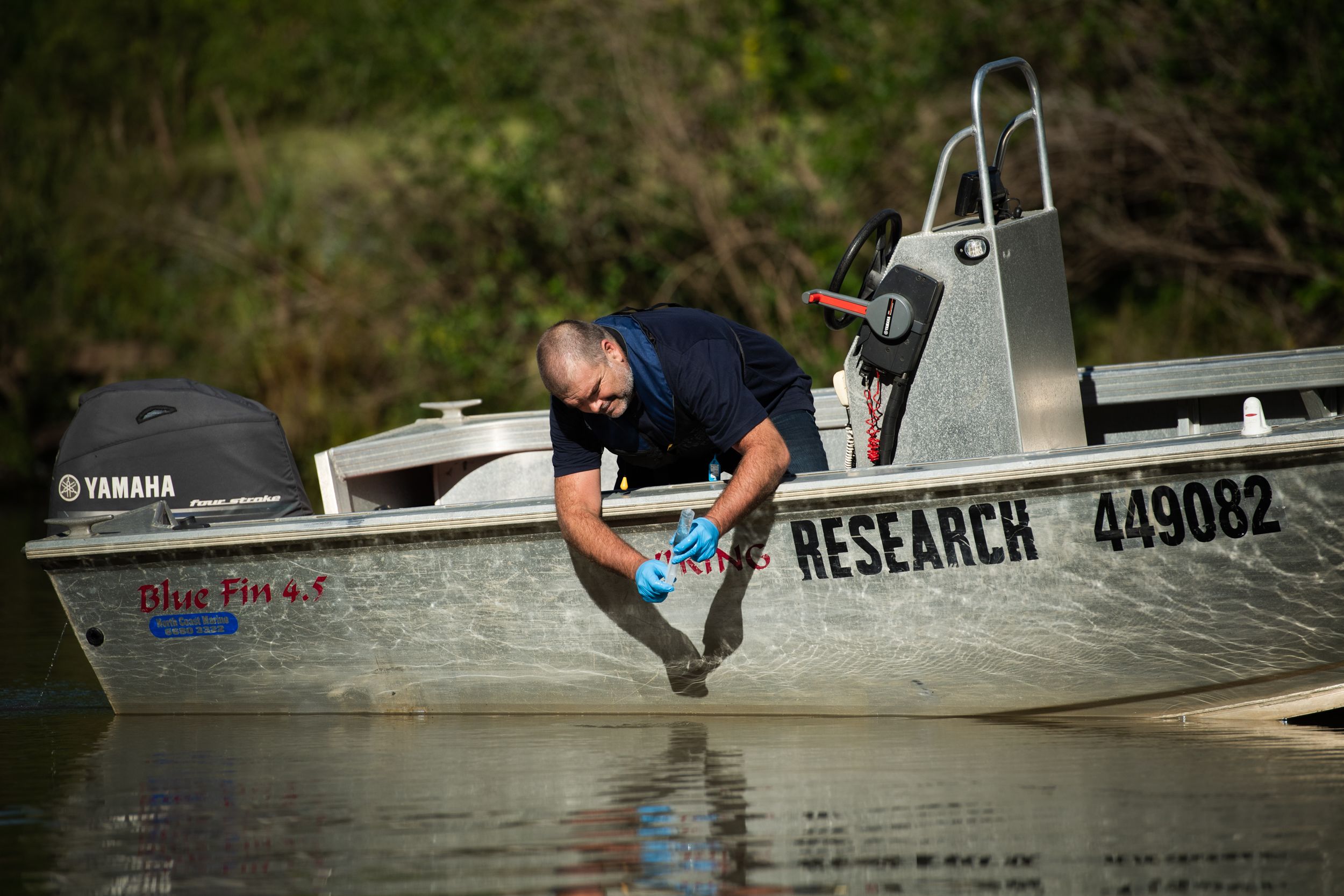
Professor Maher’s latest project is a case in point. On the Hawkesbury River and on behalf of Sydney Water, he is investigating nutrient cycling and wastewater treatment pertaining to the future community and infrastructure needs of Sydney’s rapidly growing west.
“The population of Western Sydney is likely to grow by about two million people in coming years, with development and industry accompanying that growth,” he says. “Understanding the quality of the waterways, the cycling of nutrients and elements within them, is critical to strategy. It is a community issue, and again, what we learn can have applications for other communities and waterways.
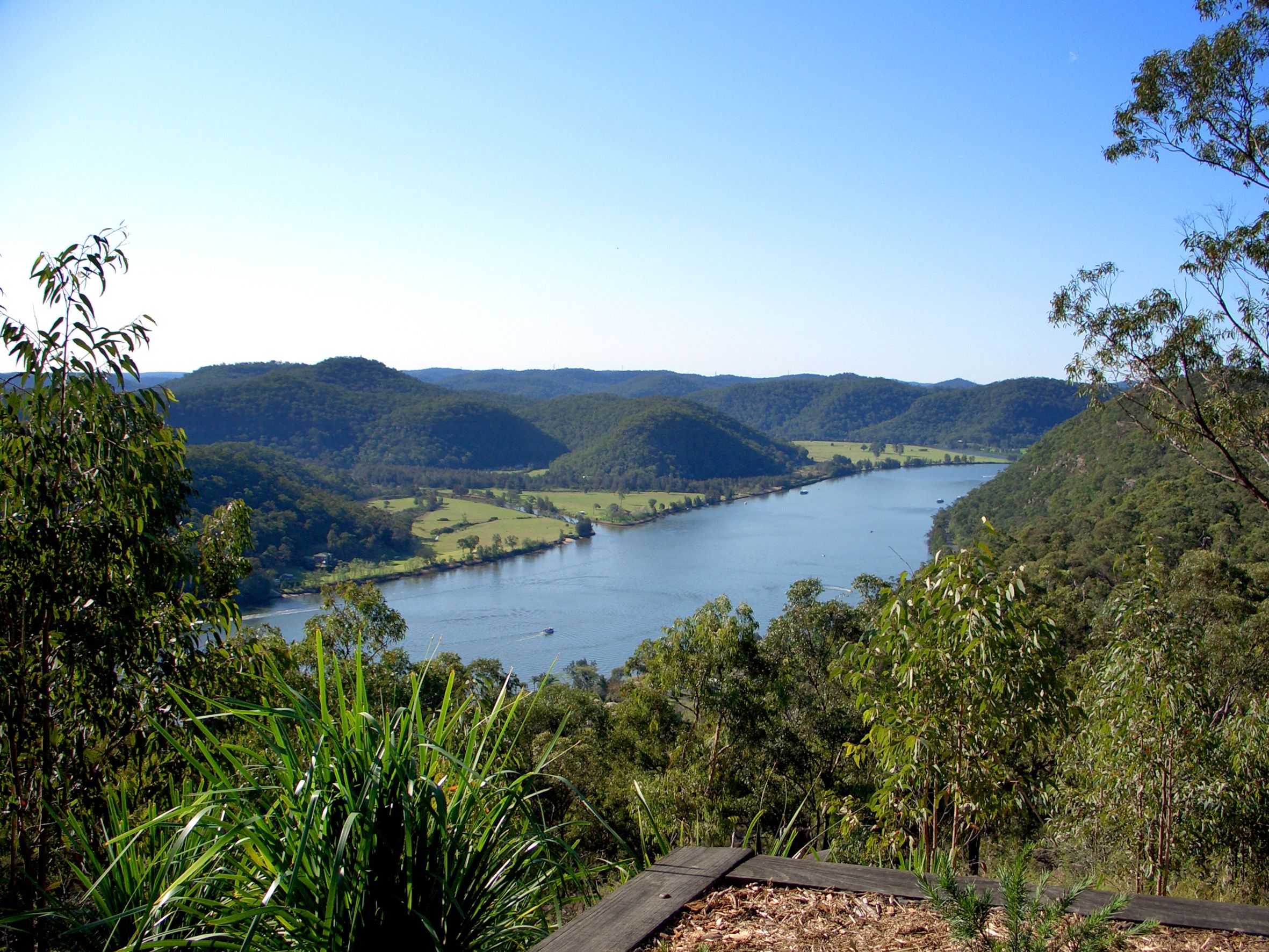
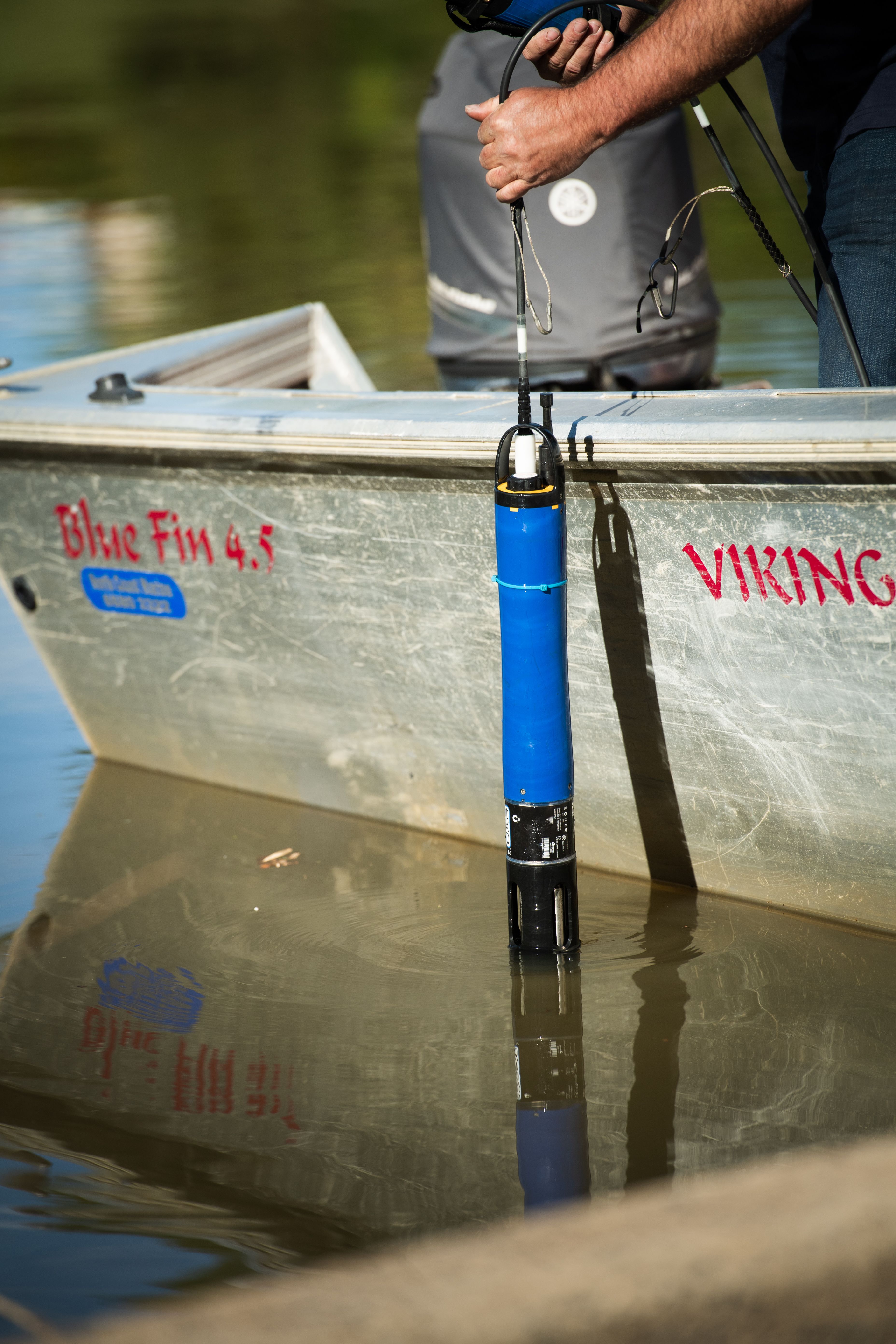
As for his own community, Professor Maher is as local as local gets in the Northern Rivers. He grew up in The Channon just outside Lismore, did his formative schooling in the area and secured that automotive engineering ticket. After a few years designing and building/rebuilding automotive parts, he enrolled at Southern Cross University.
“I have always loved rivers, estuaries, fishing and coastal zones, so that was what I wanted to study,” he says. “Around the early 2000s, our local area had seen some big fish kills and I wanted to do something about that, so I took on a Bachelor of Applied Science specializing in fisheries and aquaculture, followed by a PhD.”
Professor Maher went on to receive the Vice-Chancellor's Post-Doctoral Fellowship and an ARC (Australian Research Council) DECRA Fellowship, both of which helped establish his research pathway. In 2011, he joined Southern Cross University as a Research Scientist and received his Professorship in 2018.
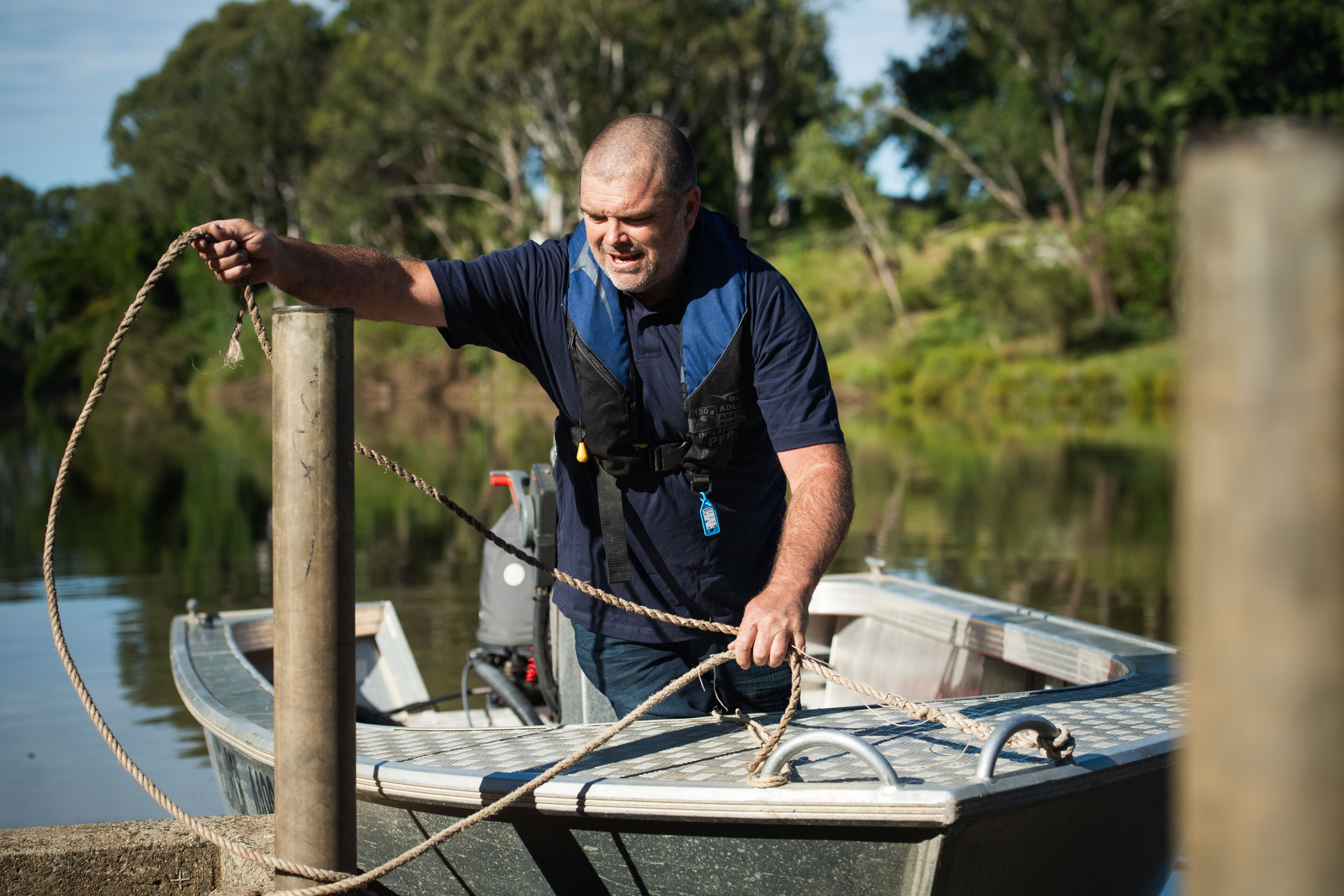
Leadership of the Catchments, Coasts and Communities research cluster is the latest step in an influential career, and understandably, flooding is a prominent early theme.
“In the wake of the 2022 floods, we are looking even more closely at flooding, how to mitigate its impact on communities and the environment,” says Professor Maher. “Community consultation and contribution will be integral to this work.”
This is affirmed by initiatives such as Southern Cross University’s VC Flood Recovery Project Scheme, announced in 2022 and comprising seven research projects with deep community roots.
Funded to the tune of $25,000 each, recipient projects include Associate Professor Adele Wessell’s Digital archive of the Richmond Catchment, an online data repository for those seeking to understand how to manage the catchment and restore its health; and Professor Amanda Reichelt-Brushett's Community voice on river health, documenting community aspirations and preferences for the Richmond River Catchment.
Elsewhere, Southern Cross University researchers are delivering world-leading findings that encompass the parameters of Catchments, Coasts and Communities. Priorities include groundwater and surface water hydrology, biogeochemistry, marine and freshwater chemistry, and greenhouse gas cycling. Dr James Sippo and Dr Luke Jeffrey are two who are working locally and making findings that go well beyond our region. Both completed their doctoral studies at Southern Cross, supported and championed by a community of passionate, senior researchers to take the next steps towards a career in research. Dr Sippo and Dr Jeffrey are representative of a rising global cohort of Early Career Researchers who are leading the next wave of investigation, knowledge and action on the environment. Their work now finds an audience among global decision-makers, attracting research funding from peak bodies and gathering citations in UN reports on climate change.
As young scientists, their commitment to leading positive change in the region they and their colleagues call home is as important as it is infectious. It has the future in mind and at heart.
Certainly, Damien Maher draws energy from such communality and sees the new Research Cluster as an ideal point of endeavor and discovery.
Dr Sippo’s research on blue carbon – carbon captured by the world’s ocean and coastal ecosystems – includes development of the BlueCAM accounting model that allows farmers, businesses and industries to earn Australian carbon credit units by establishing and rehabilitating ecosystems that sequester carbon. Meanwhile, Dr Jeffrey’s research into tree-based methane emissions – or ‘treethane’ – has been hailed as representing a new frontier for the global methane and carbon cycles.
“There are many environmental challenges that fall within the new Research Impact Cluster,” says Professor Maher. “Bushfires, climate change, rising sea levels and more all speak to an imperative to work with nature and not against it. “To support that, community consultation will complement scientific rigor.
“It is an exciting prospect, one in which broad-scale education and engagement can inform solutions that protect our environment and allow our communities to thrive.”
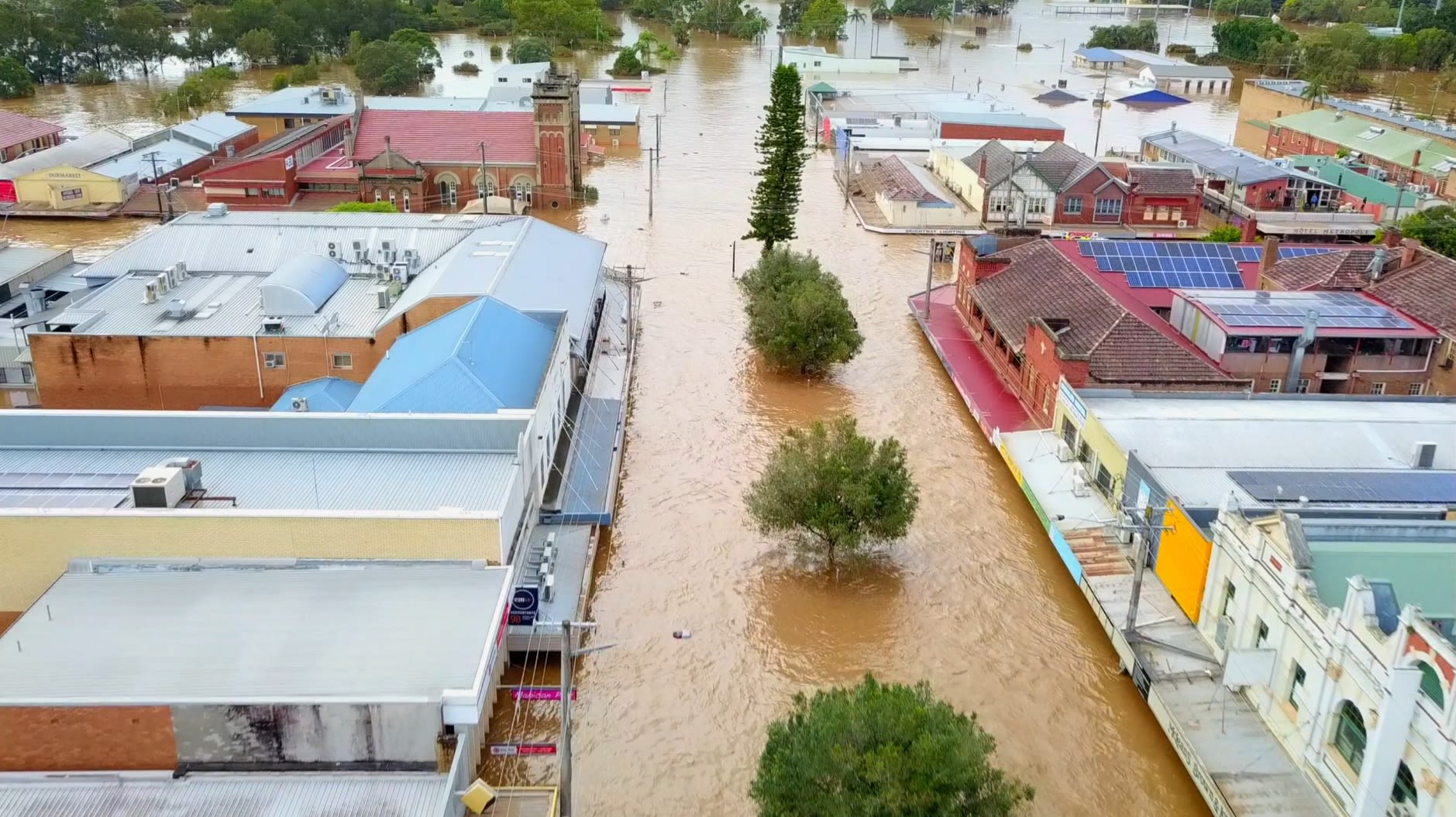
A flooded street in Lismore, NSW in 2022. Credit: NR Aerial Photography
A flooded street in Lismore, NSW in 2022. Credit: NR Aerial Photography
About Southern Cross University
- 3 main campuses on Australia’s east coast / 7 branch campuses including main cities
- 20,000+ students
- Top 200 Young Universities (Times Higher Education World University Rankings) and Top 450 Environmental Sciences (QS Rankings 2023)
This content was paid for and created by Southern Cross University . The editorial staff of The Chronicle had no role in its preparation. Find out more about paid content.



